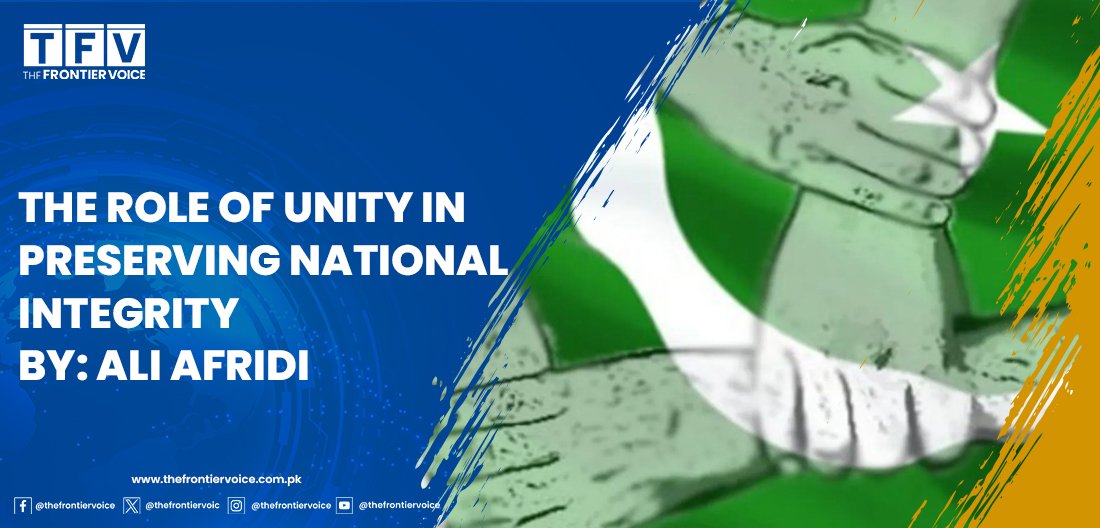POLITICS
The Role of Unity in Preserving National Integrity

Written By: Ali Afridi
When we look back through history, a troubling truth emerges: some of the greatest threats to humanity have come not from obvious enemies but from those posing as friends, hiding self-interest behind a mask of concern. After World War II, a new approach came to light a kind of warfare known today as Fifth Generation or Hybrid Warfare. This isn’t a traditional battlefield fight; instead, it’s a conflict that arises from within a society itself. Here, hostile forces, often extremists or antagonistic entities, live among the people they target, subtly spreading distrust and conflict to turn citizens against their own government and military.
Hybrid warfare is essentially a psychological battle without physical weapons, aiming to deepen moral and religious divides. Sensitive issues are manipulated into national crises, exploiting social, economic, and psychological factors to push people against their leaders. In doing so, it sows the seeds of discord, creating an internal conflict that pits citizens against the very forces meant to protect them.
This concept of warfare gained traction post-World War II, as globalization spread and societies encountered new cultures and traditions. In this new world, adversaries could impose their ideas subtly, embedding them so that people might unknowingly stand against their own country. Pakistan has become a recent victim of this tactic, and its effects continue to escalate, signaling an urgent need for countermeasures.
Pakistan, as the only Muslim country founded on ideological principles, was built on unity and organization. Recognizing this unity as a source of strength, powerful empires have used hybrid warfare tactics to destabilize Pakistan. They especially target the youth, trying to seed distrust in their own country and its institutions, encouraging dissatisfaction with government bodies like the judiciary, military, and others. Media, while a fast information source, is often a vehicle for these divisive messages, whether knowingly or not, spreading negativity easily.
Given the critical situation created by hybrid warfare in Pakistan, an immediate, determined response is crucial. Countermeasures are the only option left to mitigate the damage already inflicted. The government could establish a youth-focused task force to raise awareness about the threats facing the country. This initiative would help people understand which ideologies genuinely align with Pakistan’s values. Additionally, a coordinated civil-military alliance could tackle these adversarial strategies effectively.
Pakistan’s youth, distanced from their ideological roots, await leadership grounded in the principles of Quaid-e-Azam, a leadership that can restore the unity vital to the nation’s strength. In the face of hybrid warfare, only unity can secure Pakistan’s future. By reaffirming its core ideology with unshakable faith, Pakistan can chart a path toward resilience. Positive, accurate information shared through media can further empower society, helping citizens to face this conflict head-on with courage.
The government should work toward a robust democratic system, reassuring the public that its institutions-government, military, judiciary are committed to the nation’s well-being. Such assurances build resilience in the people, giving them the confidence and strength to face even the toughest challenges.
